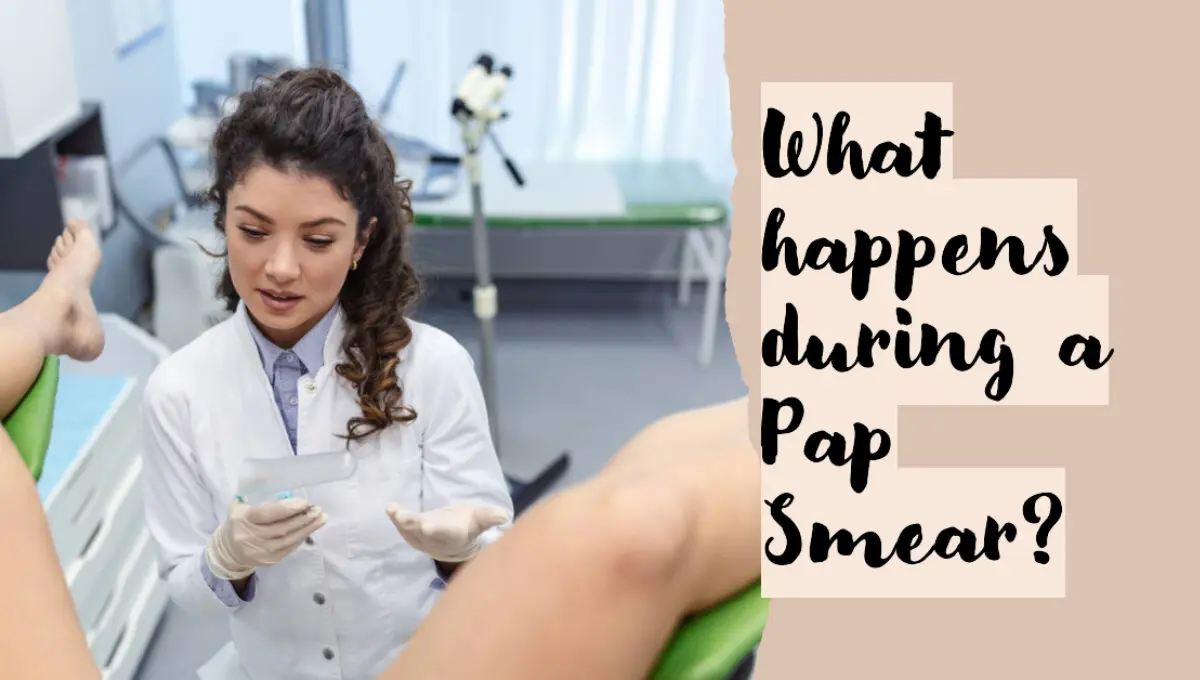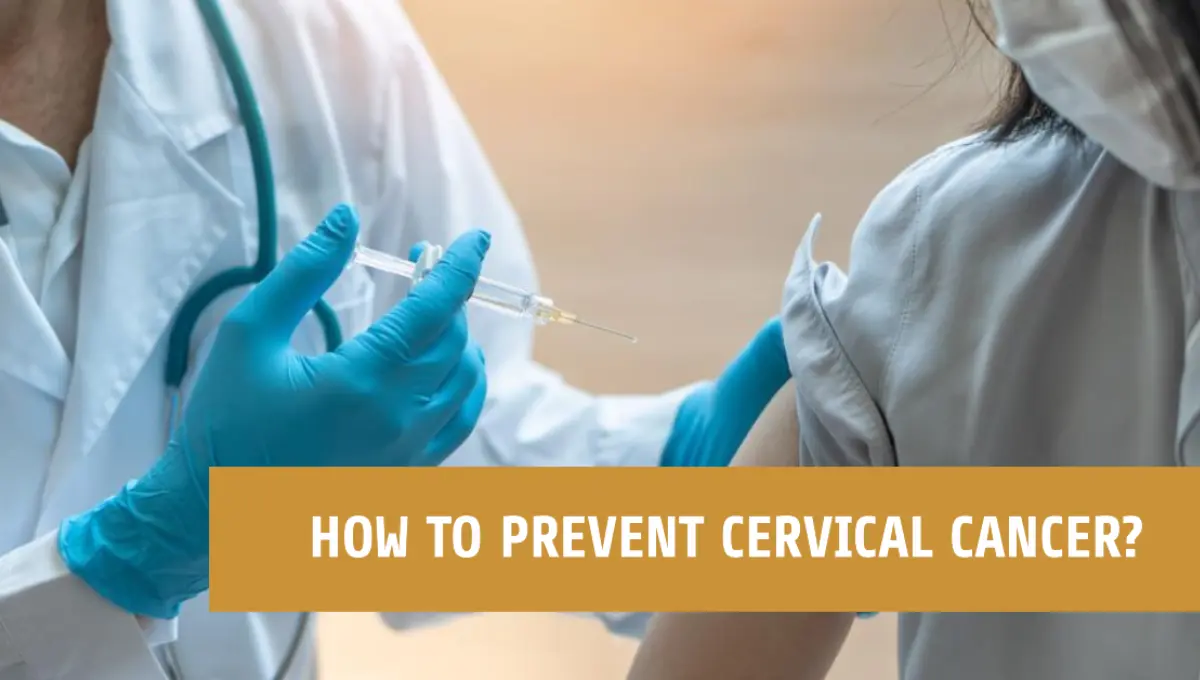
Getting regular Pap smears is an important part of women’s healthcare. Pap smears, also known as Pap tests, are screenings that can detect abnormal cells in the cervix, which may indicate the presence of cervical cancer. But how often do I need a Pap smear? Let’s find out.
Related: Symptoms and Management of HPV During Pregnancy
What is a Pap smear?
A Pap smear is a simple procedure where cells are collected from the cervix and examined under a microscope to check for any abnormalities. It is a crucial tool for early detection and prevention of cervical cancer.
Related: 15 Questions to Ask at First Prenatal Visit
What are the Benefits of Routine Pap smears?
Routine Pap smears are essential for women’s health and can help detect cervical cancer early, which increases the chances of a cure. Here are some benefits of routine Pap smears:
- Detecting cervical cancer early: Pap smears can identify suspicious cells in the cervix that could signal a precancerous condition. Regular Pap tests may help prevent cervical cancer by finding cervical cell changes in your body that would become cancer if left untreated. If a doctor discovers that a patient has cervical cancer in its early stage, her chances of a good treatment outcome are extremely high.
- Monitoring sexual diseases: Pap smears are necessary for testing for various sexually transmitted diseases and infections, such as gonorrhea, chlamydia, and trichomoniasis. Spotting these issues early keeps you from unknowingly spreading them to other people and allows doctors to cure you, keeping them from developing into something more serious, such as HIV.
- Providing peace of mind: Having a regular Pap smear is also useful for providing peace of mind. Staying vigilant about your health and getting regular check-ups can help you feel more in control of your body and your life.
Related: How Does Aging Impact Your Vagina?
When should I start getting Pap smears?
The American Cancer Society recommends that women start getting Pap smears at the age of 21. It is important to note that this recommendation is for women who have a cervix, regardless of sexual activity or age of first sexual encounter.
Related: How Does Sex Induce Labor?
How often do I need a Pap smear?

The frequency of Pap smears depends on various factors, including age and previous test results. Here are some general guidelines:
- Women aged 21 to 29: It is recommended to have a Pap smear every three years.
- Women aged 30 to 65: You can choose to have a Pap smear every three years or a combination of Pap smear and HPV test every five years.
- Women over 65: If you have had regular screenings with normal results, you may be able to stop having Pap smears.
Related: I Had Sex After My Period And Started Bleeding Again
What happens if I never get a Pap Smear?
Regular Pap smears are crucial for women’s well-being as they identify potential cancerous cells in the cervix. Neglecting them could lead to serious consequences. Here’s why:
- Higher Cervical Cancer Risk: Without regular Pap smears, you might unknowingly develop cervical cancer, which is a prevalent and potentially fatal condition. These screenings detect abnormal cells early, allowing for timely treatment.
- Missed Health Screenings: Pap smears often include pelvic and breast exams that can uncover various health issues like ovarian cysts or breast abnormalities.
- Delayed Diagnosis and Treatment: If cervical cancer goes unnoticed, it can advance, making treatment harder and less effective.
Related: Breast Self-Exam: When to Worry, When to Seek Help
What is the relationship between HPV and cervical cancer?
HPV is a common sexually transmitted infection that can lead to cervical cancer. Since HPV is a primary cause of cervical cancer, testing for it alongside a Pap smear can provide a more comprehensive assessment of your cervical health.
Related: When To Have Sex After C-Section?
What happens during a Pap Smear?

During the procedure, a doctor uses a vaginal speculum to hold the vaginal walls apart and to see the cervix. Next, a sample of cells from the cervix is collected using a small cone-shaped brush and a tiny plastic spatula. The doctor then rinses the brush and spatula in a liquid-filled vial and sends the vial to a laboratory for testing. The test checks for abnormal cells in the cervix that are cancerous or have the potential to become cancerous. If the Pap smear is abnormal, the doctor may perform a procedure called colposcopy using a special magnifying instrument (colposcope).
Related: Sex After Hysterectomy
Does a Pap Smear hurt?
A Pap smear should not hurt, but it may feel uncomfortable or cause mild discomfort. Some women may feel pressure or a light scratching sensation when the cells are collected from the cervix, while others may feel nothing at all. However, for some women, the test can be painful, and there are several reasons why cervical screening may be painful, including vaginal dryness, vaginismus, vulvodynia, and endometriosis. If you experience pain during the test, you should tell your healthcare provider immediately so they can take the necessary measures. Overall, the test is quick and safe, and it is one of the most important parts of a gynecological exam to prevent cervical cancer.
Related: How Long To Wait For Sex After Yeast Infection Treatment?
How to prepare for a Pap Smear?
To prepare for a Pap smear, it is recommended to avoid sexual intercourse, douching, or using any vaginal medicines or spermicidal foams, creams or jellies for two days before the test. It is also advised not to schedule the test during menstrual periods. If the patient is on their period during the scheduled appointment, they can still proceed with the test. There are no other specific preparations needed for a Pap smear.
Related: C-Section Scar Healing Stages
What do Pap Smear results mean?
Pap smear results can be normal, unclear, abnormal, or unsatisfactory.
- A normal result means that no sign of disease was found.
- An unclear result means that the lab could not determine whether the cells are normal or abnormal.
- An abnormal result means that there are cells in the cervix that look unusual, which can be caused by yeast or bacterial infection, irritation, benign growths, hormonal changes, or pre-cancer.
- An unsatisfactory result means that there were not enough cells in the sample or the cells were clumped together.
In addition, an HPV test can be performed along with a Pap smear, and the result can be positive or negative. A positive HPV test means that you have a type of HPV that’s linked to cervical cancer, but it doesn’t mean that you have cervical cancer now.
If your Pap smear results are abnormal, your doctor may recommend a colposcopy to examine your cervix more closely.
Related: Making Love, Not War: 10 Comfortable Pregnancy Sex Positions
Do I need to follow up after abnormal Pap smears?
After receiving abnormal Pap smear results, it is important to follow up with your healthcare provider for further evaluation and guidance. Here are the recommended next steps after an abnormal Pap smear:
- Repeat Pap test or HPV test: Your doctor may recommend repeating the Pap test or performing an HPV test to gather more information about the abnormal results.
- Colposcopy: If the abnormal results persist or if there are other concerning factors, your doctor may recommend a colposcopy. During this procedure, a special magnifying instrument called a colposcope is used to examine the cervix more closely. If necessary, a biopsy may be taken for further analysis.
- Further testing: Depending on the specific circumstances, additional tests such as endocervical scraping or cone biopsies may be performed to gather more information about the abnormal cells.
- Follow-up care: The recommended follow-up care will depend on the severity of the abnormal results and individual risk factors. Your healthcare provider will discuss the appropriate follow-up plan for you, which may include more frequent Pap tests, colposcopies, or other interventions.
It is important to remember that most people with abnormal Pap smear results do not have cancer. In many cases, the abnormal cells may go away on their own or can be treated early to prevent the development of cervical cancer.
How to prevent Cervical Cancer?

Cervical cancer is one of the few cancers that is almost totally preventable. Here are some ways to reduce the risk of developing cervical cancer apart from having regular Pap smears:
- Get vaccinated against HPV: HPV infection causes virtually all cervical cancer, and getting vaccinated against HPV is a well-proven way to prevent cervical cancer. The HPV vaccine is recommended for all adolescents as part of their routine vaccines and may be given starting at age 9. Talk with your health care provider about the appropriate schedule for vaccination as it may vary based on many factors, including age, gender, and vaccine availability.
- Don’t smoke: If you’re a smoker, you have double the chance of getting cervical cancer than a nonsmoker. Researchers think that tobacco byproducts can start the cell changes that lead to cervical cancer.
- Use condoms during sex: HPV infection can occur in both male and female, and using condoms during sex can help reduce the risk of getting HPV.
In addition to the above steps, there are other things that may also help lower the risk for cervical cancer, such as maintaining a healthy diet and exercise routine, and reducing stress.
Do I need a Pap Smear if not sexually active?

If you’re not sexually active, the need for a Pap smear differs from those who are sexually active. Pap smears screen for cervical cancer and detect abnormal cervix cells, often caused by the sexually transmitted HPV. For non-sexually active individuals without HPV exposure, the cervical cancer risk is lower. Healthcare providers may suggest distinct screening guidelines. Discuss your health situation openly with your provider to determine the suitable screening plan based on your age, medical history, and risks. Regardless of your sexual activity, regular preventive healthcare visits and health discussions remain crucial.
Can I get a Pap Smear while Pregnant?

Yes, it is safe to get a Pap smear while pregnant. Pap smears are a routine part of prenatal care and pose no risk to the fetus. In fact, it is recommended to have a Pap smear during pregnancy to screen for cervical cancer and detect any abnormalities early on. Any suggestion that a Pap smear might cause a miscarriage is false. It is normal to experience minor bleeding after a Pap smear when pregnant because blood flow to the uterus increases, which causes the cervix to bleed more easily when touched.
However, if you have an abnormal Pap during pregnancy, your physician will discuss treatments that can be done safely during pregnancy or delay treatment until after your baby is born. If your physician is considering doing an internal biopsy into the endocervical canal, there may be a slight risk of a pregnancy complication, but your healthcare provider will only do what is medically necessary.
Do I need Pap Smears after hysterectomy?
The need for Pap smears after a hysterectomy depends on the type of hysterectomy and the reason for the procedure. Here are some key points:
- If your cervix was removed during hysterectomy for a benign condition, such as fibroids or endometriosis, you don’t need further Pap tests.
- If you had an abdominal hysterectomy and the surgeon didn’t remove your cervix, you’ll need to continue having Pap tests on a schedule determined by your age and risk for cervical cancer.
- Women still need regular cervical screening tests if they have a cervix (if they had a sub-total hysterectomy or partial hysterectomy). Women without a cervix (total hysterectomy) generally do not need Pap smears.
- Health care providers generally agree that women can stop routine Pap test screening after age 65 — whether you’ve had a hysterectomy or not.
Are there Pap Smears for LGBTQ+ individuals?

Yes, there are Pap smears for LGBTQ+ individuals, specifically for lesbian, bisexual, and queer women. It is important for all individuals with a cervix, regardless of their sexual orientation or gender identity, to undergo regular cervical cancer screening tests. Here are some key points from the search results:
- Cervical Cancer Screening: All women between the ages of 25 and 64 who have a cervix, including lesbian and bisexual women, need to go for regular cervical screening tests.
- Genital Skin-to-Skin Contact: If an individual has ever had genital skin-to-skin contact with anyone of any gender, they should get a Pap test.
- Misconceptions: There is a common misconception that lesbian, gay, and bisexual (LGB) women cannot get HPV or do not need Pap smears. However, this is not true, and LGB individuals with a cervix should still undergo cervical cancer screening.
- Barriers to Screening: It is worth noting that lesbians and other LGBTQ+ individuals may face barriers to accessing cervical cancer screening, leading to lower rates of Pap tests and HPV testing compared to heterosexual women.
Do I need Pap Smears after menopause?
After menopause, the need for Pap smears may vary depending on individual factors and medical history. Here are some key points:
- Continuing Pap Smears: Even if you are menopausal or postmenopausal, it is generally recommended to continue having Pap smears or HPV tests. Regular screenings allow healthcare providers to track the overall health of your cervix and detect any abnormal cell growth that could be an early sign of cervical cancer.
- Total Hysterectomy: If you have had a total hysterectomy for a noncancerous condition and have not had a previous history of precancerous Pap tests, you may be able to stop Pap screening depending on your medical history and risk of contracting human papillomavirus (HPV).
- Age and Screening Frequency: The frequency of Pap smears after menopause depends on your age and the results of your recent Pap tests. If you have had all normal Pap tests, you can stop getting Pap tests after the age of 65. Between the ages of 30 and 65, the frequency of Pap smears depends on the result of your Pap and HPV testing. If the HPV test is negative and the Pap is normal, screening every three years is appropriate.
- Individual Factors: Other factors that may influence the need for Pap smears after menopause include whether you were vaccinated against HPV, use barrier methods during sexual activity, or take immunosuppressant medications.
What if I have certain risk factors?
If you have certain risk factors, such as a weakened immune system or a history of cervical cancer or precancerous cells, your healthcare provider may recommend more frequent Pap smears. It’s important to discuss your individual situation with your doctor.
Conclusion
Regular Pap smears are essential for the early detection and prevention of cervical cancer. The frequency of Pap smears depends on your age, previous test results, and individual risk factors. It’s important to discuss with your healthcare provider to determine the best screening schedule for you.
Frequently Asked Questions (FAQs)
Are Pap smears painful?
Pap smears are generally not painful, although some women may experience mild discomfort or a sensation of pressure during the procedure. If you have concerns, talk to your healthcare provider who can help make you more comfortable.
Can I get a Pap smear while on my period?
It is generally recommended to avoid scheduling a Pap smear during your period, as blood can interfere with the accuracy of the test. If you have an appointment scheduled and unexpectedly start your period, it’s best to reschedule.
Can I get a Pap smear if I’m pregnant?
It is safe to have a Pap smear during pregnancy. In fact, it is recommended to continue with regular screenings, as pregnancy does not interfere with the accuracy of the test.
Do I still need a Pap smear if I’ve received the HPV vaccine?
Yes, even if you have received the HPV vaccine, it is still important to have regular Pap smears. The vaccine protects against certain strains of HPV, but not all of them. Pap smears can detect abnormal cells caused by other HPV strains.
Can I get a Pap smear from my primary care doctor?
Yes, many primary care doctors offer Pap smears as part of their services. However, if you have specific concerns or risk factors, your doctor may refer you to a gynecologist or a specialist.
Can I get a Pap smear if I’m not sexually active?
Yes, Pap smears are recommended for all women with a cervix, regardless of sexual activity. The purpose of the test is to detect abnormal cells in the cervix, which can occur even without sexual activity.
Can a Pap smear diagnose other gynecological conditions?
While Pap smears primarily screen for cervical cancer, they can also detect other gynecological conditions, such as infections or inflammation. However, additional tests may be needed to confirm a diagnosis.
How long does it take to get Pap smear results?
The time it takes to receive Pap smear results can vary. In general, it may take a few days to a couple of weeks. Your healthcare provider will inform you of the expected timeframe.
Can I get a Pap smear if I’m breastfeeding?
Yes, it is safe to have a Pap smear while breastfeeding. The procedure does not interfere with breastfeeding or milk production.
Can I get a Pap smear if I have a vaginal infection?
It is generally recommended to wait until any vaginal infection has cleared before having a Pap smear. Infections can affect the accuracy of the test, so it’s best to discuss with your healthcare provider.






